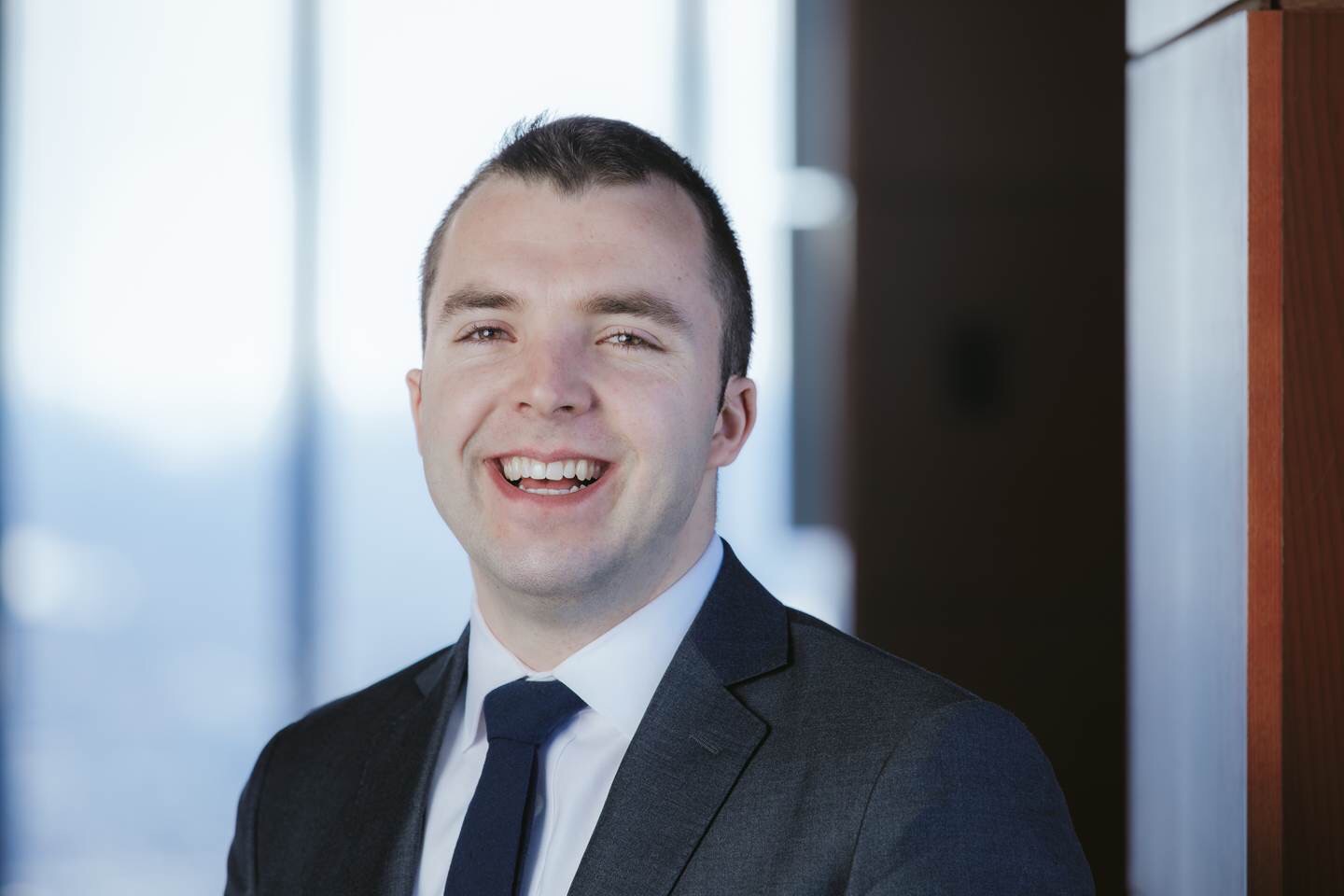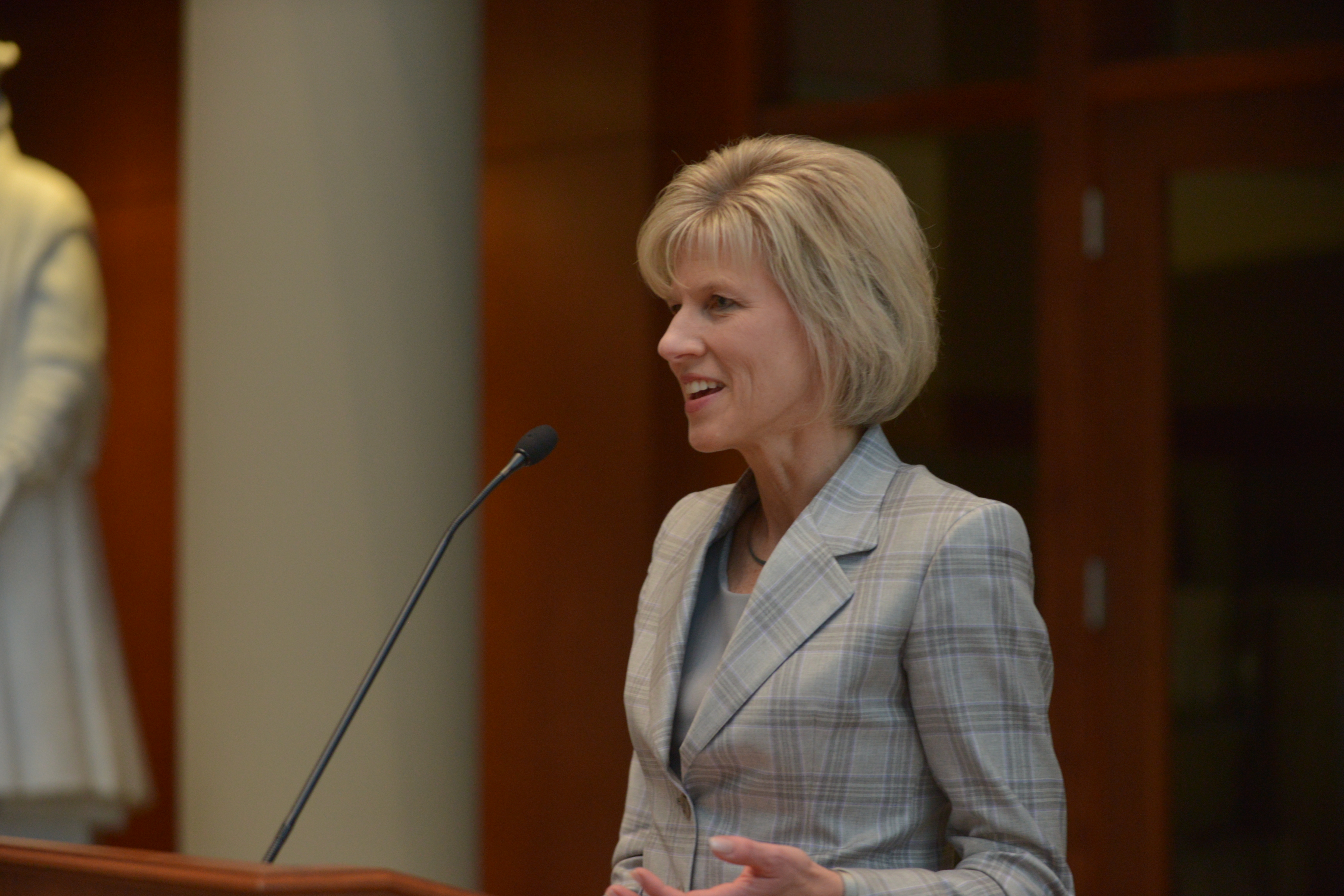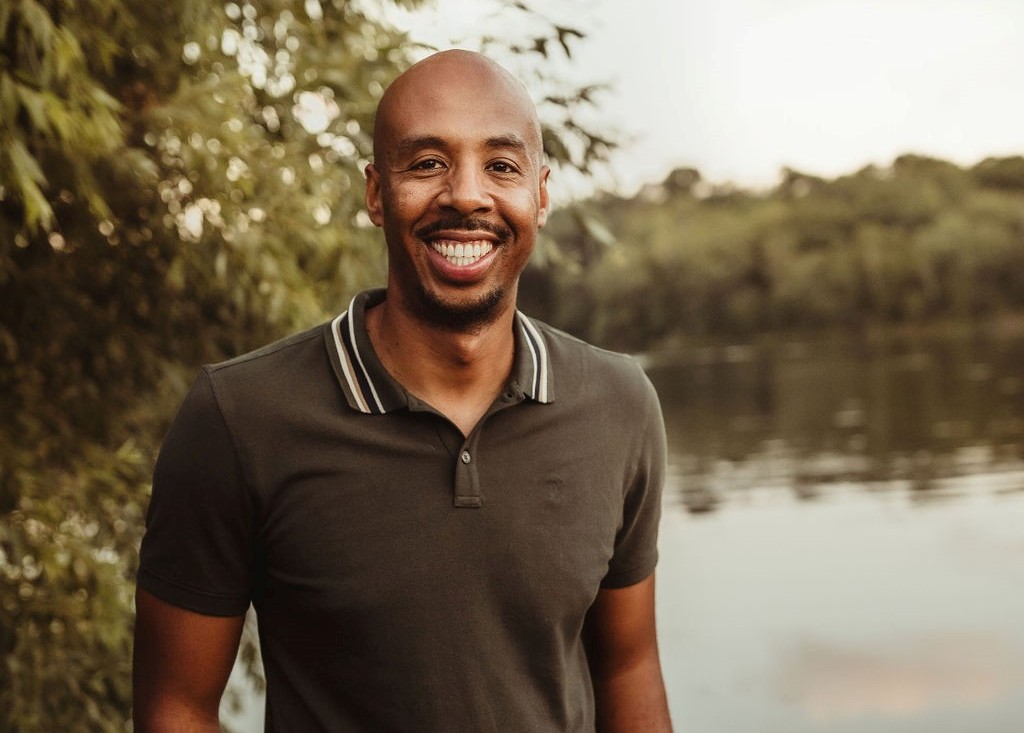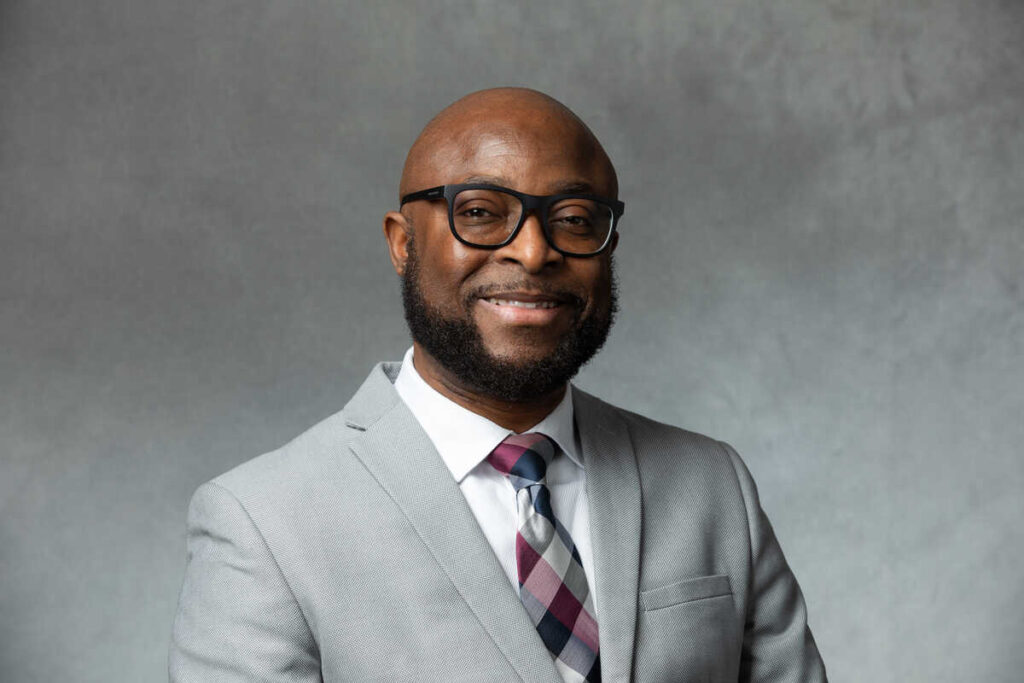When Ryan Quinlivan ’15 was studying finance in Opus College of Business, he knew the field was vital in the business world. However, he was a bit concerned that, unlike law and medicine, finance doesn’t have a profession-wide oath to guide professional behavior and ethical standards.
Quinlivan found the answer to his concern in St. Thomas’ interdisciplinary curriculum, commitment to the common good and, more specifically, a Catholic studies course. He credits Christian Faith in the Management Profession as the course that prepared him best for the real world, influenced his thinking and drove him to form a nonprofit, Scholars of Finance.
“I learned from that course that you’re able to adhere to your values, to be who you are, and still be successful in business,” Quinlivan said.
He described the course, co-taught by Dr. Michael Naughton and Dr. Brian Shapiro, as providing a “really unique and interesting way to weave Judeo-Christian principles into business.”
Creating Scholars of Finance

Ryan Quinlivan ’15
Quinlivan, who now works in New York for Piper Jaffray as assistant vice president for institutional equity sales, took that energy and commitment to ethics to co-found Scholars of Finance, which helps develop the next generation of highly capable financial executives who will act and lead from a strong grounding in principles and ethics.
Creating Scholars of Finance required collaboration and connections. After studying abroad, Quinlivan was networking as much as possible during his senior year. At a Market Technicians Association meeting at the Piper Jaffray Minneapolis office, he met University of Minnesota student Ross Overline.
Their involvement in the investment clubs of their respective universities led to their collaboration. Quinlivan suggested they bring their two clubs together for a social event, as many of these finance students would likely end up working with each other in the Twin Cities after graduation. Overline’s response was to ask his mentor, Andrew Duff, who at the time was CEO of Piper Jaffray, to speak at the joint social event, and then from Duff’s input the idea grew into a larger symposium event with a panel of executives from the Twin Cities.
The executive panel was asked to share their career experiences, but specifically times when they had faced ethical dilemmas. The event is an example of what makes the mission of Scholars of Finance particularly special: not just that they help students be prepared for advancement in the professional world, but that they prepare students ethically, as well. By showing examples of ethical business leaders, the organization seeks to expand beyond the scope of profit-based decisions and to teach students to hold onto their values in the most crucial moments.
Scholars of Finance programs
The annual leadership symposium is the largest event Scholars of Finance has, and is often the introduction to Scholars of Finance. It has attracted speakers like Andy Cecere, CEO of U.S. Bank and St. Thomas Board of Trustees member; Deb Schoneman, president of Piper Jaffray; and Cathy Smith, CFO of Target, among many others.
“We wanted to inspire our classmates to live in accordance with moral principles and core values, and who better to do that than some of the most successful leaders in finance?” Overline said.
Several other programs work to instill integrity and stewardship principles in undergraduates studying finance:
- Scholars of Finance offers its students a mentorship network in which all undergraduates within a chapter meet one-on-one monthly with a professional mentor in the finance field.
- The leadership development program is an intensive six-week course in which deep introspection allows students to realize their values and how they want to live them out.
- A monthly speaker series runs as a scaled-down version of the annual leadership symposium in which an executive speaks to the leadership team of a local chapter.
The structure of the chapters themselves uses student leadership to build the community. Each chapter bridges between two universities and has a president, a vice president and six specialized roles. All the programming is purposely student-led, as “that way they’re able to have an actual community of other undergraduates who value integrity, stewardship and ethics in professional finance,” Quinlivan said.
When students graduate with their finance degree, they can then mentor the undergraduate students or come in as part of the monthly speaker series. Finance professionals are encouraged to stay connected with their chapter in this way and to give back by helping form the next class of undergraduate finance students.
“Scholars of Finance is unique. There are few organizations that focus on values, leadership and ethics within finance, yet these topics are crucial to the success and sustainability of the world’s financial system,” said Noah Haverlock ’20, president of the Minneapolis chapter. “Scholars of Finance has provided me with countless management opportunities, leadership training and exposure to high profile Twin Cities executives.”
Scholars of Finance doesn’t charge dues, instead funding its programs through grants from foundations or corporations such as U.S. Bank, Piper Jaffray and Target, in addition to some individuals who provide funding. For the annual symposium, St. Thomas and the University of Minnesota provide a grant and/or donate space for the event.
Future and growth of Scholars of Finance

Deb Schoneman ’96 MBA addresses members of Scholars of Finance.
Scholars of Finance now reaches beyond the Twin Cities with chapters in Chicago at Northwestern University and University of Chicago. This fall, chapters have formed in the San Francisco Bay Area at the University of California, Berkeley and Stanford University, and in New York City at New York University and Columbia University. From eight universities, Scholars of Finance plans to double in size in the next year, and within the next three years to have chapters at 50 universities. Scholars of Finance is aiming to grow its presence organically and to drastically increase the numbers of students that experience one of the programs.
The growth of Scholars of Finance is not solely the work of Quinlivan, who said, “I didn’t do this alone. Ross and I invited four of our friends to help us put on the first symposium. Between three chapters … there’s upward of 30 students on the leadership teams and 80 members across the country, and they’re the ones who are actually doing the day-to-day work.”
All of the planning and support necessary for the growing, nationwide membership demanded more work than what could be done by the two co-founders on the weekends. Overline became the first full-time CEO, and Scholars of Finance is currently hiring for a COO position to help support the organization’s growth.
“I believe that developing future finance leaders with character and integrity is one of the highest-leverage ways we can make the world better in the long term. When my fellow board directors asked me to assume the role, it was an easy decision,” Overline said.
Quinlivan’s vision for increased integration of ethics in finance professions is clearly motivated by caring for students. He wants them to remain true to themselves and their values, and work for the right reasons. Scholars of Finance is there to empower students to do just that.
“While we’re excited about the growth and excited about launching the programs at new universities, the focus from day one, and the focus always, will be to serve the undergraduate students," Quinlivan said. "While Ross is the CEO and focused on fundraising, tech implementation, and developing programs, the focus is always on how we can best serve and best equip and best instruct undergraduate students. With Ross stepping in as CEO we are going to make much more progress toward delivering against our mission.”







